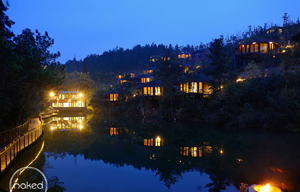Having designs on improving city life
The massive urbanization that China is going through has posed many questions to both the people and the government and an important and increasingly popular one is how to plan and construct a city that will make urban life more agreeable.
Urban planning and architecture are not only about solving housing problems. They are also about paying more attention to heritage protection, renovation of old cities and the construction of public artistic spaces, which will keep alive the collective memory and improve standards of living.
The fifth China International Architectural Biennial, at the Olympic Park on Aug 20, is going to discuss these questions. The biennial will last two months.
Ten works by leading architects from around the world will be presented to the public at the park, including those by Zaha Hadid and Herzong, the designer of the Bird Nest.
The biennial, with the theme of "Beautiful China—My City, My Home", will stress the importance of citizen participation in designing and building a city.
"We are trying to have the public enjoy creativity of the design. It is our wish that they can interact with the architecture we present," Luo Li, secretary general of the Organizing Committee of CIAB, said at a press conference in Beijing on Tuesday.
There also will be a design competition during the biennial.
"The competition is a very important part of our biennial. We regard it as an opportunity for the public to receive education in architectural art. We hope that through the media, especially through Internet, the public can offer their ideas about public space," she says.
Mohsen Mostafavi, dean of the Graduate School of Design, Harvard University, says the best way to let the public interact with architecture in public spaces is to let them participate in the process of the design and construction.
"There should be conversations between designers and the public, so that architects can explain to people about their design," he says.
Another highlight for the biennial is that it will place an emphasis on city living at night so that the public can enjoy the benefits long after the working day ends.
|
|
|
























